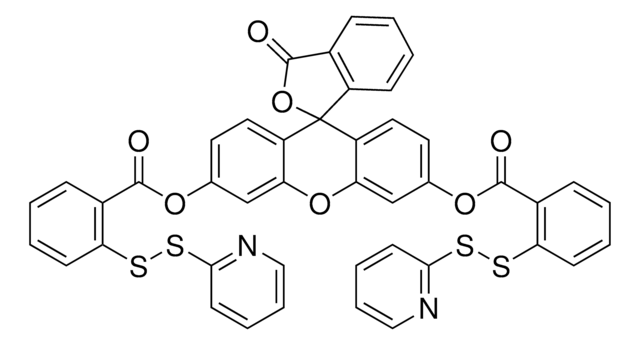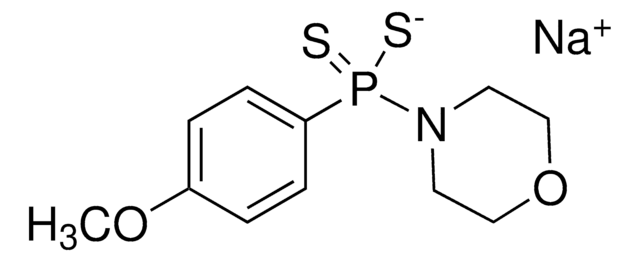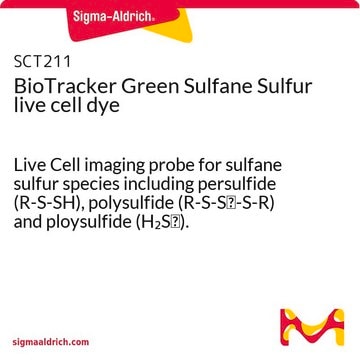802409
7-Azido-4-Methylcoumarin
97%
Synonyme(s) :
4-Methyl-7-azidocoumarin, 7-Azido-4-methyl-2H-1-benzopyran-2-one
About This Item
Produits recommandés
Niveau de qualité
Pureté
97%
Forme
powder
Pf
117.8 °C
Chaîne SMILES
CC1=CC(=O)Oc2cc(ccc12)N=[N+]=[N-]
InChI
1S/C10H7N3O2/c1-6-4-10(14)15-9-5-7(12-13-11)2-3-8(6)9/h2-5H,1H3
Clé InChI
HEKDKVLIMUWRRZ-UHFFFAOYSA-N
Vous recherchez des produits similaires ? Visite Guide de comparaison des produits
Application
Caution: Use of this product with DTT, TCEP and/or biological thiols >25mM should be avoided for maximum efficiency.
AzMC is readily soluble in DMSO.
Code de la classe de stockage
11 - Combustible Solids
Classe de danger pour l'eau (WGK)
WGK 3
Point d'éclair (°F)
Not applicable
Point d'éclair (°C)
Not applicable
Certificats d'analyse (COA)
Recherchez un Certificats d'analyse (COA) en saisissant le numéro de lot du produit. Les numéros de lot figurent sur l'étiquette du produit après les mots "Lot" ou "Batch".
Déjà en possession de ce produit ?
Retrouvez la documentation relative aux produits que vous avez récemment achetés dans la Bibliothèque de documents.
Les clients ont également consulté
Notre équipe de scientifiques dispose d'une expérience dans tous les secteurs de la recherche, notamment en sciences de la vie, science des matériaux, synthèse chimique, chromatographie, analyse et dans de nombreux autres domaines..
Contacter notre Service technique


![7-Diethylamino-3-[N-(2-maleimidoethyl)carbamoyl]coumarin suitable for fluorescence, BioReagent, ≥97.0% (HPLC)](/deepweb/assets/sigmaaldrich/product/structures/341/038/a7e0c464-8abe-4eb0-b253-6537f649d89c/640/a7e0c464-8abe-4eb0-b253-6537f649d89c.png)








